In an effort to apply IT to practices of learning, universities are trying to implement e-Learning systems and expanding the extent of their usage. Nowadays, e-Learning systems are not only used for conducting web-based distance learning, but also use...
http://chineseinput.net/에서 pinyin(병음)방식으로 중국어를 변환할 수 있습니다.
변환된 중국어를 복사하여 사용하시면 됩니다.
- 中文 을 입력하시려면 zhongwen을 입력하시고 space를누르시면됩니다.
- 北京 을 입력하시려면 beijing을 입력하시고 space를 누르시면 됩니다.

이러닝시스템의 매체풍부성, 매체유용성, 매체경험이 학습자 만족에 미치는 영향 = The Impacts of Media Richness, Media Usefulness, and Media Experience on the Leaner's Satisfaction with e-Learning Systems
한글로보기https://www.riss.kr/link?id=A106670818
-
저자
최수정 ; 강경준 ; 고일상 ; Choi, Su-Jeong ; Kang, Kyung-Jun ; Ko, Il-Sang
- 발행기관
- 학술지명
- 권호사항
-
발행연도
2007
-
작성언어
Korean
- 주제어
-
등재정보
KCI등재
-
자료형태
학술저널
- 발행기관 URL
-
수록면
27-47(21쪽)
- 제공처
- 소장기관
-
0
상세조회 -
0
다운로드
부가정보
다국어 초록 (Multilingual Abstract)
In an effort to apply IT to practices of learning, universities are trying to implement e-Learning systems and expanding the extent of their usage. Nowadays, e-Learning systems are not only used for conducting web-based distance learning, but also used for supporting traditional classes education by encouraging communication and information sharing between instructors and learners or among the learners. There is relatively lack of studies on the exploitation of e-Learning systems in the traditional classes, in comparison with a distance education. Specifically, howe-Learning systems could support the traditional class and/or which benefits e-Learning systems could offer in the classes are among the important issues. In this study, we suggest that e-Learning systems would be the rich media to communicate and exchange information among people who participate in a class. We derive key variables like media richness and media experience from Media Richness Theory and from Channel Expansion Theory. Moreover, Media usefulness and Satisfaction of a learner with e-Learning system is drawn from the literature on IS success. We examine the effects of perceived media richness, media usefulness, and media experience on leaner's satisfaction with e-Learning systems. In addition, we also investigate learner's media usefulness perception which is positively related to media richness and media experience. Finally, learner's experience with e-Learning systems affects perceived media richness. Based on the results of an empirical test. we first suggest that perceived media richness with e-Learning systems contributes to increase media usefulness and satisfaction of a learner. Second, media experience is an important predictor of media richness and media usefulness perception. Consequently, the result can support Channel Expansion Theory. Finally, media usefulness perception affects learner's satisfaction with e-Learning systems.
동일학술지(권/호) 다른 논문
-
- 한국정보기술응용학회
- 이경휘
- 2007
- KCI등재
-
모바일 경로와 기법으로 본 모바일 광고 유형에 관한 연구
- 한국정보기술응용학회
- 이홍일
- 2007
- KCI등재
-
- 한국정보기술응용학회
- 민대환
- 2007
- KCI등재
-
- 한국정보기술응용학회
- 정철호
- 2007
- KCI등재
분석정보
연관 공개강의(KOCW)
-
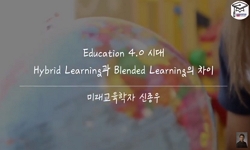
Education 4.0 시대, Hybrid Learning과 Blended Learning의 차이
신한대학교 신종우 -
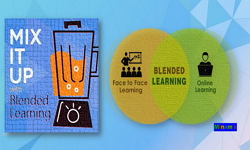
온∙오프라인의 만남, 블렌디드 러닝(Blended Learning)
신한대학교 신종우 -
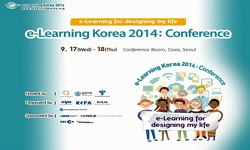
2014 이러닝 국제 콘퍼런스 : Understand Seniors’ Motivation in e-Learning through
한국교육정보진흥협회 Thomas Kuan -
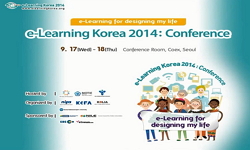
2014 이러닝 국제 콘퍼런스 : Developing the PETAL e-Learning Platform~
한국교육정보진흥협회 Vincent Tam -
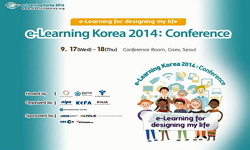
2014 이러닝 국제 콘퍼런스: Analysis of e-Learning Program Management for Adults in Korea
한국교육정보진흥협회 Don-Min, Choi




 ScienceON
ScienceON eArticle
eArticle


